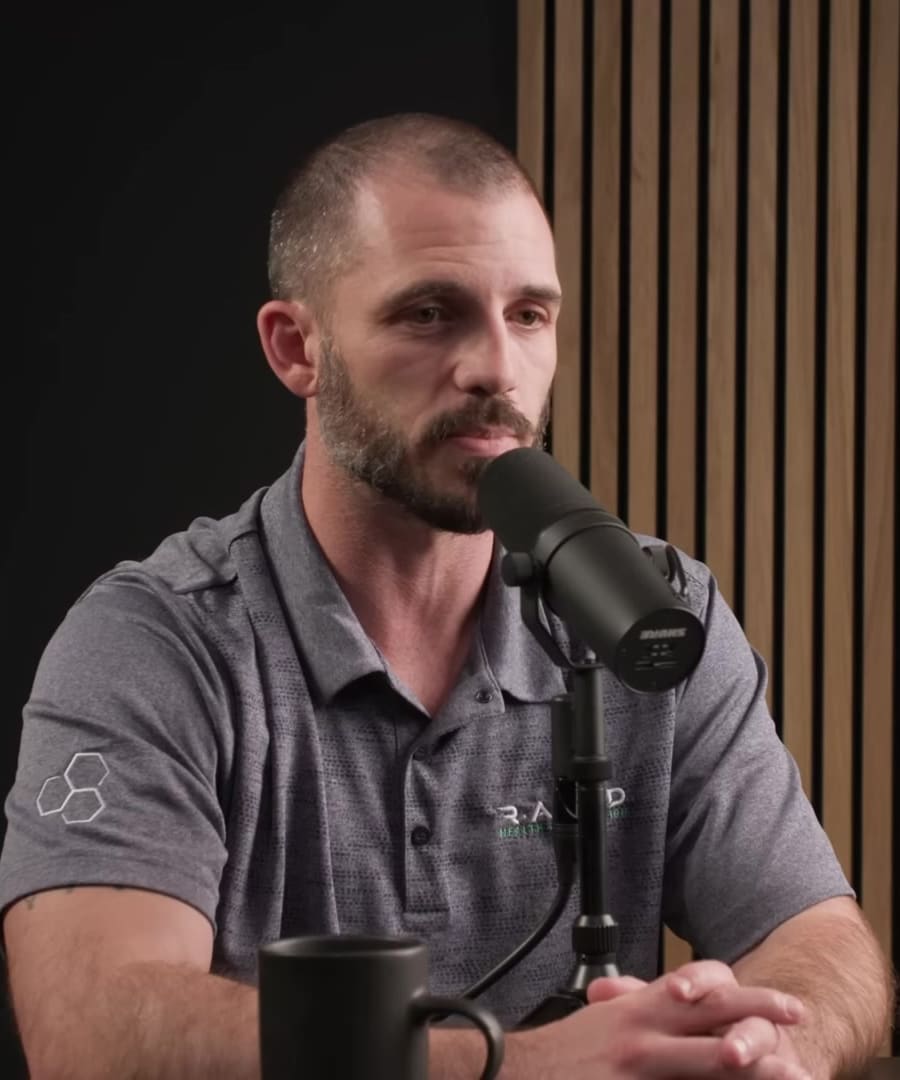How can I recover after staying up until 4am
Sources:
To recover after staying up until 4 am, you might consider the following steps:
-
Skip Intensive Training: suggests that after a poor night's sleep, it might be beneficial to skip intensive training the next day to focus on recovery. However, if you really want to exercise, you could incorporate non-sleep deep rest (NSDR), like the one he guides on YouTube, before you train 1.
-
Maintain a Consistent Wake Time: Instead of sleeping in late the day after staying up, try to wake up at your usual time. This helps maintain your biological rhythm 2.
-
Avoid Going to Bed Too Early the Next Night: To support your immediate and long-term health, it's advised not to compensate by going to bed much earlier than your typical time, as doing so can disrupt your rhythm 2.
-
Use 90-Minute Work Blocks: Schedule one or two 90-minute work blocks during the day where you engage in deep, focused work. It is important to adapt this to your own schedule and types of activities 2.
Ensure you adapt these suggestions according to your personal situation and health needs.
RELATED QUESTIONS-
List clips similar to "Work Blocks"
Sources:
Here is a list of clips discussing focused work blocks and strategies for enhancing productivity similar to the "Work Blocks" clip:
-
"Work Optimization": Andrew Huberman discusses how different environments can impact creativity and productivity, suggesting areas with higher ceilings for brainstorming and creativity, and lower ceilings for detailed work. Additionally, he mentions using binaural beats as a potential focus aid 1.
-
"Enhancing Focus": This clip elaborates on the use of binaural beats for increasing concentration and focus. Andrew Huberman also touches on alternative background sounds like white noise and brown noise that listeners can experiment with for cognitive focus 2.
-
"Boosting Focus": Andrew Huberman recommends using cold exposure, caffeine, and 40 Hz binaural beats to boost focus and alertness, suggesting that this can contribute to a very productive 90-minute work session 3.
-
"Optimize Your Workspace": The clip covers workspace optimization to improve focus and productivity. Andrew Huberman proposes using bright overhead lights, standing for part of the workday, and avoiding prolonged exposure to certain sound frequencies 4.
-
"Fasting and Focus": Andrew shares how being in a fasted or fed state can influence focus and concentration. He also provides insight into how ketosis can improve brain function, concentration, and focus 5.
-
"Boosting Focus": Andrew explains how to enhance dopamine transmission with L-tyrosine, leading to increased focus, particularly useful before a workout or concentrated mental work 6.
-
"Maximizing Focus": This clip examines the time it takes for the brain to engage in focused work. Andrew suggests approaches for minimizing the time to reach a focus state 7.
Explore these clips to understand various methods and tools you can use to improve your productivity and focus during work.
RELATED QUESTIONS-
Summarize Maximizing Productivity, Physical & Mental Health with Daily Tools | Huberman Lab Podcast #28
The of the explores various science-based protocols and tools to enhance daily routines for better productivity and physical and mental health. Dr. discusses various topics, including the importance of morning routines, optimizing workspace for focus and productivity, and managing daily habits to improve physical health and sleep. The episode also touches on the benefits of fasting, caffeine timing, exercise, and brain-boosting nutrition, as well as ways to handle hormones for overall health. Additionally, it provides insights into effective rest and routine, including work blocks and non-sleep deep rest techniques to avoid afternoon slumps, alongside practical supplements to support these changes. The description is a high-level overview, and the full episode includes more detailed discussions and recommendations on these topics. The episode was published on July 12, 2021.
RELATED QUESTIONSHow can I improve my sleep hygiene?
Sources:
Improving sleep hygiene is essential for better sleep quality. The offers a variety of recommendations:
-
Check for Biological Factors: Analyze saliva and blood to identify any physiological problems that may be impacting sleep, such as neurotransmitter concentrations or vitamin levels 1.
-
Optimize Your Environment: Ensure your bedroom is free from allergens, keep it dark and cool, and wash your sheets regularly. Avoid screen time a couple of hours before bed to limit blue light exposure, which can disrupt your circadian rhythm 1 2.
-
Behavioral Tools: Maintain a consistent sleep routine with a regular bedtime and wake-up time. Engage in relaxing activities before bed rather than working or using screens 2.
-
Nutrition and Supplementation: Consider supplements like magnesium threonate, apigenin, and theanine if behavioral changes are not enough. Always consult a physician before adding supplements to your routine 3.
-
Physical Adjustments: Minor adjustments like the sleeping position can significantly improve sleep quality. Use technology or simple items like a special pillow to prevent sleeping in positions that cause awakeness episodes 4.
-
Morning Routine: Start the day early, ideally two to three hours before your usual wake-up time, and maximize outdoor light exposure in the morning. This can help regulate your circadian timing 5.
-
Avoid Smoking: Smoking nicotine and cannabis can negatively impact fertility and overall sleep quality, so it is best to avoid these substances 6.
For most people, aiming for six to eight hours of quality sleep per night is ideal. Improving sleep hygiene involves a holistic approach, incorporating both lifestyle changes and environmental adjustments. Visit the Huberman Lab website for further sleep resources and download the sleep toolkit for detailed guidance.
RELATED QUESTIONS-
Can you give me more tips on recovering from staying up late?
Sources:
To recover from staying up late and mitigate the impact on your sleep schedule, Huberman Lab provides several recommendations:
-
Do Nothing Different: After a poor night's sleep, avoid changing your wake-up time, napping during the day, consuming extra caffeine, or going to bed earlier the next night 1.
-
Regular Sleep Schedule: Try to wake up at the same time every day. If you've stayed up late, still aim to get up around your regular wake-up time to maintain your sleep rhythm 2 3.
-
Morning Sunlight: No matter how late you stay up, ensure you get some morning sunlight as it helps keep your circadian rhythms stable 3.
-
Caffeine Intake: Delay caffeine consumption for 90 to 120 minutes after waking, especially on days you feel sleep-deprived. This helps avoid further disruption of your sleep architecture 2.
Remember to consult these tips and practice them as needed to improve your sleep habits after late nights.
RELATED QUESTIONS-
How can I recover after staying up until 4am
- RELATED QUESTIONS
List clips similar to "Work Blocks"
- RELATED QUESTIONS
Summarize Maximizing Productivity, Physical & Mental Health with Daily Tools | Huberman Lab Podcast #28
- RELATED QUESTIONS
How can I improve my sleep hygiene?
- RELATED QUESTIONS
Can you give me more tips on recovering from staying up late?
- RELATED QUESTIONS

















